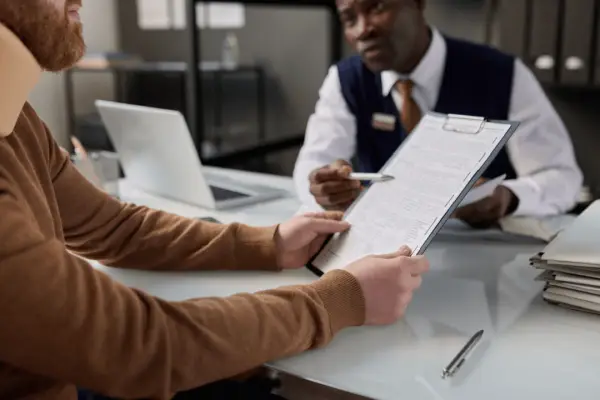
What Not to Say When You Hit a Car? Critical Communication Guide
What Not to Say When You Hit a Car: Protect Your Legal Rights
What not to say when you hit a car? Avoid admitting fault, apologizing, or making statements about your actions during the accident. These comments may negatively impact your insurance claim and legal position.
Understanding what not to say when you hit a car protects you from liability issues and insurance complications. The moments after an accident can be emotionally charged, so it’s important to be mindful of your words. This guide provides essential communication strategies for accident scenes.
Admission Statements: Avoid These Costly Mistakes
Knowing what not to say when you hit a car starts with avoiding fault admissions. Insurance companies and courts scrutinize every statement made at accident scenes, using your words against you during claim investigations.
Avoid Saying These Phrases:
- “I’m sorry, it was my fault”
- “I didn’t see the other car”
- “I was texting while driving”
- “I was going too fast”
- “I wasn’t paying attention”
The National Highway Traffic Safety Administration reports indicate that spontaneous admissions at accident scenes can complicate insurance claims. Even if you believe you caused the accident, investigations may reveal contributing factors that change liability determinations.
Why Apologies Hurt Your Case
Many drivers wonder what not to say when you hit a car regarding expressions of sympathy. While natural to apologize, these statements can be interpreted as fault admissions in legal proceedings.
Problematic Apology Statements:
- “I’m so sorry this happened”
- “This is all my fault”
- “I should have been more careful”
- “I take full responsibility”
Instead of apologizing, express concern for everyone’s wellbeing without accepting blame. Say “I hope everyone is okay” rather than “I’m sorry I hit you.”
Insurance Comments: Protecting Your Coverage
Understanding what not to say when you hit a car includes avoiding premature insurance discussions. Insurance adjusters use initial statements to determine coverage and liability, making careful communication essential.
Avoid These Insurance Statements:
- “My insurance will cover everything”
- “Don’t worry about calling your insurance”
- “I’ll pay for the damages myself”
- “This won’t affect my rates”
The Federal Trade Commission emphasizes that drivers should never make financial commitments at accident scenes. Insurance policies include procedures for handling claims, and bypassing them could lead to coverage issues.
Documentation Mistakes to Avoid
Learning what not to say when you hit a car also involves understanding documentation errors. Poor communication during evidence gathering can weaken your position during claim investigations.
Documentation Don’ts:
- Don’t speculate about causes in written statements
- Avoid signing documents you haven’t read completely
- Never agree to unofficial damage assessments
- Don’t provide recorded statements without attorney consultation
The Consumer Financial Protection Bureau recommends limiting communication to basic facts: date, time, location, and contact information. Detailed explanations can be provided later through proper insurance channels.
Legal Implications: How Words Affect Your Case
Recognizing what not to say when you hit a car involves understanding legal consequences. Statements made at accident scenes become evidence in potential lawsuits and insurance disputes.
Legal Risks of Poor Communication:
- Admissions can establish liability regardless of actual fault
- Contradictory statements undermine credibility
- Emotional statements may be taken out of context
- Premature settlements can limit future claims
Professional Communication Tips
Instead of worrying about what not to say when you hit a car, focus on appropriate communication strategies. Professional, factual communication protects your interests while maintaining cooperation with other parties.
Appropriate Accident Scene Communication:
- Exchange basic contact and insurance information
- Describe observable facts without interpretation
- Request police reports for official documentation
- Limit discussions to immediate safety concerns
Communication Strategy: What Not to Say When You Hit a Car Response
Successful accident communication involves knowing what not to say when you hit a car while maintaining appropriate cooperation. Stay calm, stick to facts, and avoid speculation about causes or fault.
The key to protecting yourself lies in understanding that accident investigations involve multiple factors. Even if you believe you caused the collision, other contributing elements may affect final liability determinations.
Get Expert Help: Protect Your Accident Rights
Don’t let poor communication jeopardize your insurance claim or legal position. Understanding what not to say when you hit a car is just the first step in protecting your rights after an accident.
Visit traffic accident to learn more about your options and how experienced attorneys can assist you with the claims process. Our legal professionals provide immediate consultation to help you navigate communication challenges and protect your interests.
Frequently Asked Questions
1. Should I apologize if I hit another car?
Avoid apologizing as it can be interpreted as an admission of fault. Express concern for safety instead of accepting blame for the accident.
2. Can I discuss the accident details with the other driver?
Limit discussion to basic information exchange. Avoid speculating about causes or accepting responsibility for the collision.
3. What should I tell my insurance company after hitting a car?
Provide factual information about the accident without admitting fault. Let the insurance company investigate and determine liability.
4. Should I agree to handle damages privately without insurance?
Never agree to private settlements at the accident scene. Hidden damages and injuries may surface later, creating liability issues.
5. Can police statements affect my insurance claim?
Yes, police reports become official documentation. Be factual and avoid admissions when speaking with responding officers.
Key Takeaways
- Never admit fault or apologize at accident scenes as these statements can be used against you
- Avoid discussing accident causes or accepting responsibility before proper investigation
- Limit communication to basic facts and necessary information exchange with other parties
- Don’t make financial commitments or agree to private settlements without insurance consultation
- Seek professional legal guidance to protect your rights and navigate communication challenges properly
Free Accident Claim Review
Complete the form to have an attorney review your accident claimCOMPLETE THE FORM TO BE CONNECTED WITH AN ACCIDENT ATTORNEY
No Matching Partners at the Moment
Thank you for your inquiry but there are no matches for you at this time. Please come back later and try again.
Recent Posts
- How Do Insurance Companies Evaluate Injury Claims? Get Maximum Compensation
- What Injuries Qualify for Compensation in Personal Injury Claims? Navigating the Legal System
- What Evidence Is Needed for a Personal Injury Claim to Win Compensation?
- How Personal Injury Claims Work: Your Step-by-Step Legal Journey
- What Color Do Judges Like to See in Court for Personal Injury Cases?
Archives
- February 2026
- January 2026
- December 2025
- November 2025
- October 2025
- September 2025
- August 2025
- July 2025
- June 2025
- May 2025
- March 2025
- February 2025
- January 2025
- October 2024
- September 2024
- August 2024
- July 2024
- June 2024
- May 2024
- April 2024
- March 2024
- February 2024
- January 2024
- December 2023
- November 2023
- October 2023
- September 2023
- August 2023
- July 2023
- June 2023
- May 2023
- March 2023
- February 2023
- January 2023
- November 2022
- October 2022
- September 2022
- August 2022
- May 2022
- April 2022
- March 2022
- February 2022
- January 2022
- December 2021
- November 2021





